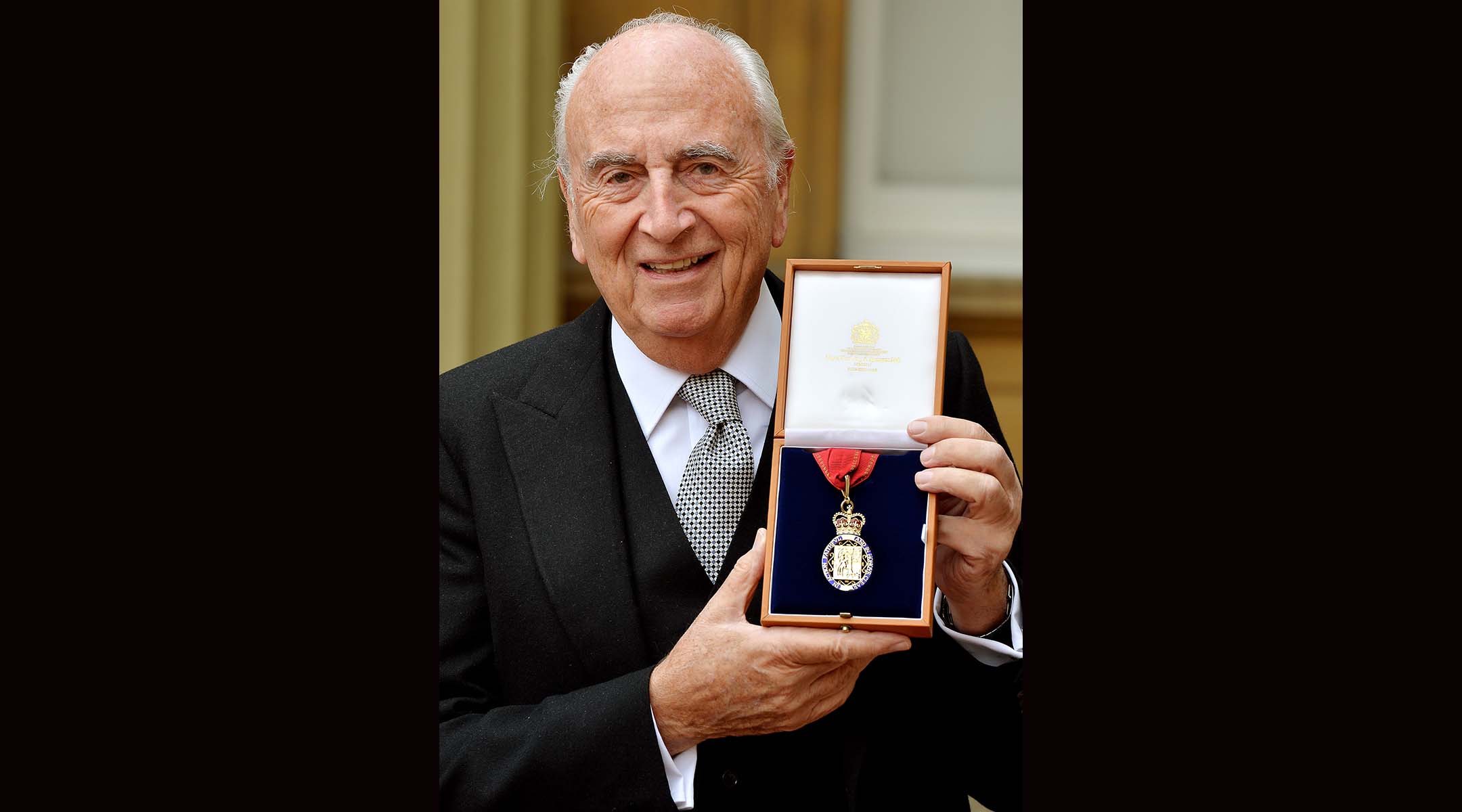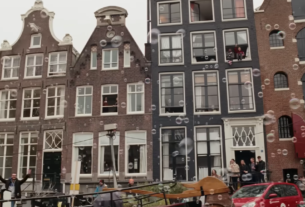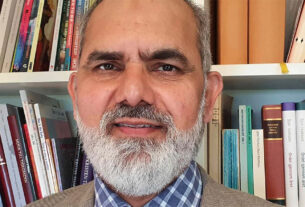(JTA) — Lord David Young, a British-Jewish member of the House of Lords who advised Conservative governments in the United Kingdom from Margaret Thatcher to David Cameron died on Thursday at the age of 90.
Young also worked as a businessman and ran Jewish charities before and after becoming a favorite fixer for Thatcher in government.
Thatcher, who appointed Young to his first political post, as an advisor in charge of privatization, has famously been quoted saying of him: “Other people bring me problems. David brings me solutions.”
According to Tom Gross, a British journalist and international affairs expert, during his many years in politics, Young also used his position to advance the needs of British Jewry and push for stronger British-Israeli relations.
“David Young did a tremendous amount not just for Britain, but for British Jews and was a significant influence on both Prime Ministers Margaret Thatcher and David Cameron in forming their more favorable impressions of Israel,” Gross told the Jewish Telegraphic Agency.
The grandson of Jewish immigrants from the Russian empire, Young was born in 1932 and grew up in North London’s working class Jewish community. His father Joseph was a flour importer who eventually went into the garment industry.
Young was educated in public schools but dropped out early to become clerk and ultimately a solicitor. Still, he quickly followed his father into the business realm, only practicing law for one year.
In the 1960s he established a group of companies that dealt in everything from industrial real estate to construction. As a successful businessman, he was also heavily involved in Jewish philanthropy.
“Lord Young was always proud of his Jewish heritage, and widely regarded for many years as the leader of the Jewish lay community,” Lord Leigh of Hurley, a longtime senior treasurer of the British Conservative party, told the Telegraph.
By the mid-1970s, he was the chairman of the British arm of ORT, a Jewish charity which promotes education and vocational training around the world. Young was also at various points the president of the Chai Cancer Care organization and the chairman of the Jewish museum of London.
It was his work with ORT, alongside his business career, that put him into the eyes of Thatcher’s government, who appointed him as an advisor in her efforts to further privatize the British economy.
“David Young did not claim to understand politics, but he understood how to make things happen,” Thatcher once said.
By 1981, he was moved from privatization to the organization of the British workforce under the manpower services committee, and by 1984 became a minister without a portfolio, floating from topic to topic to assist the Thatcher cabinet.
According to the Guardian, Thatcher had considered him for the role of chief of staff but ultimately decided he could better serve her with more freedom.
In 1984, Young was also made a “life peer” of the British parliament, styled Baron Young of Graffham, a village an hour south of London where he owned a home. The title gave him a permanent seat in the House of Lords.
After the end of Thatcher’s premiership in 1990, Young took a break from politics and returned to the business realm where he led Cable & Wireless, the first business to seriously challenge British Telecom — today BT Group — as a provider of telephone services.
Young ultimately returned to politics in 2010, after the election of Conservative leader David Cameron. Cameron first appointed Young an advisor on health and safety and later gave him the role of enterprise advisor, tasking him to examine the government’s relationship with small businesses.
Though he long worked for the Conservative party, in his later years, he had no qualms about criticizing their politicians.
According to the Guardian, he called Boris Johnson “very clever, very able but very lazy” and the antithesis of Thatcher. He also said that Cameron lacked “seichel” — a Hebrew word for intelligence — due to his handling of Brexit.
He is survived by his wife, lita and daughter Karen and Judith.




